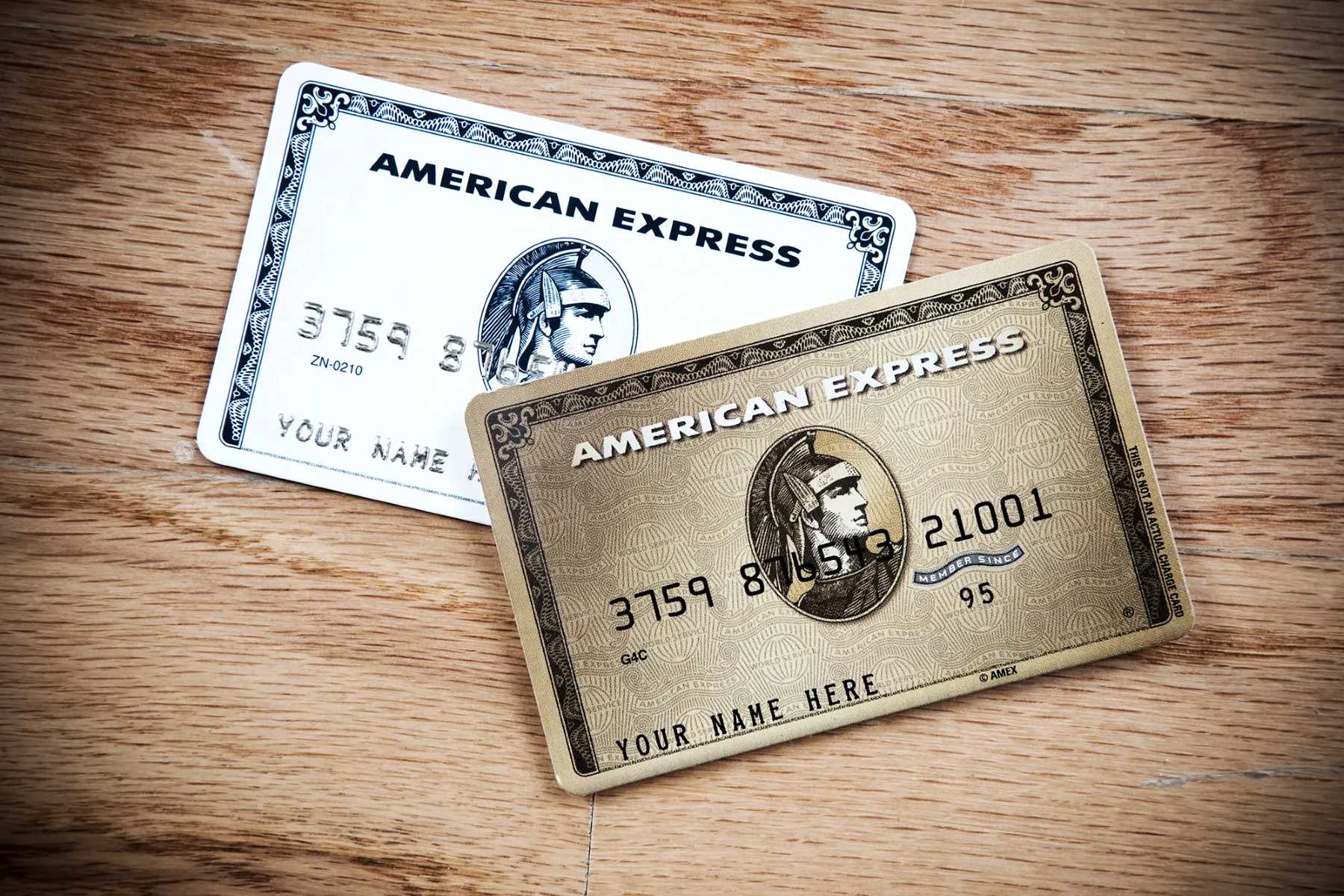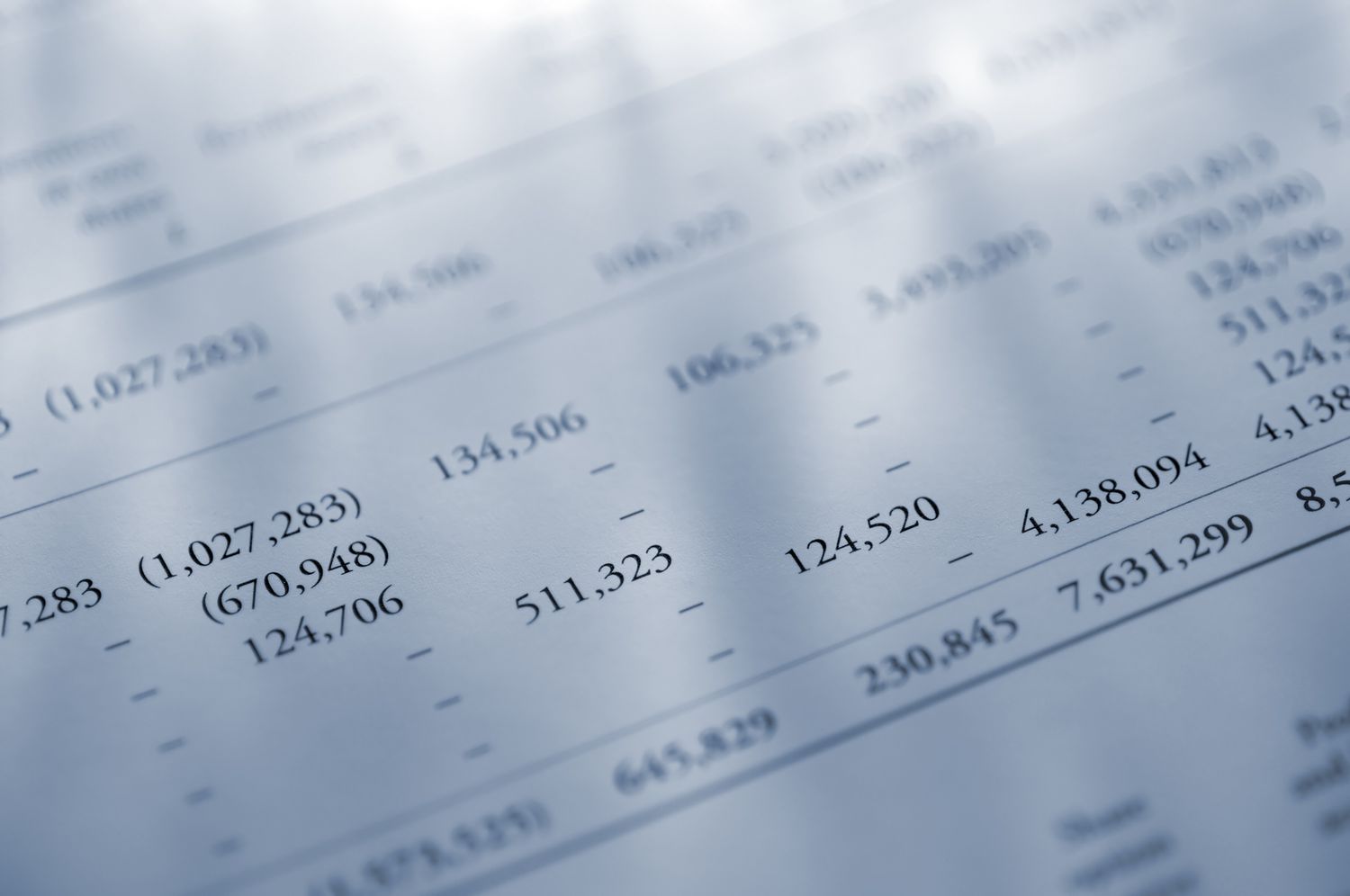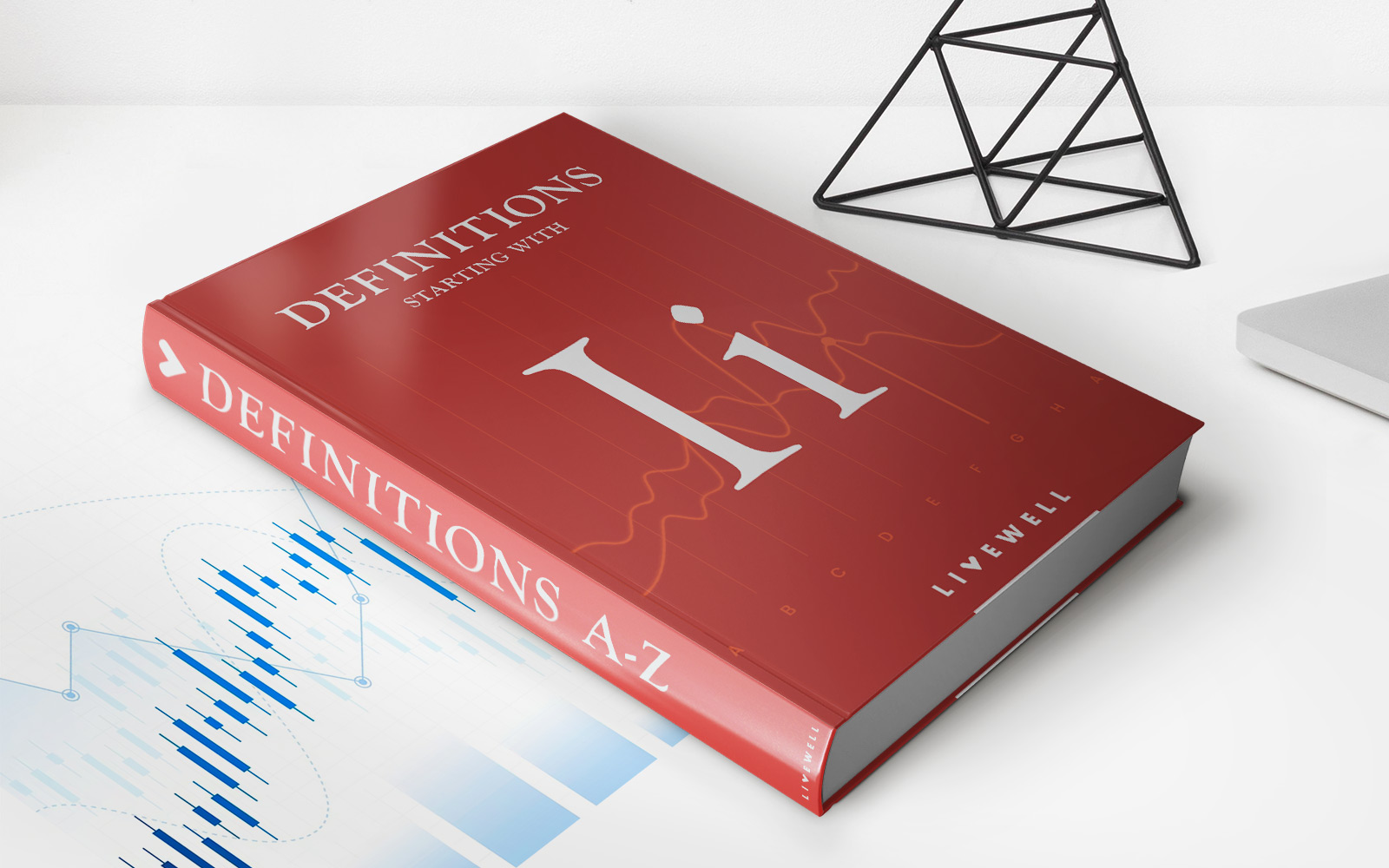Home>Finance>When Do Student Loans Get Reported To Credit Bureau


Finance
When Do Student Loans Get Reported To Credit Bureau
Published: January 20, 2024
Find out when student loans get reported to credit bureaus and how it affects your financial standing. Learn about the impact on your credit score and repayment options.
(Many of the links in this article redirect to a specific reviewed product. Your purchase of these products through affiliate links helps to generate commission for LiveWell, at no extra cost. Learn more)
Table of Contents
- Introduction
- Understanding Student Loans
- The Role of Credit Bureaus in Reporting Student Loans
- When Student Loans Are Reported to Credit Bureaus
- Impact of Student Loan Reporting on Credit Scores
- Factors That Affect Credit Reporting of Student Loans
- Strategies to Manage and Improve Credit Scores with Student Loans
- Conclusion
Introduction
Student loans have become a common way for individuals to finance their education and pursue their dreams of a higher degree. However, along with the benefits of education come the responsibilities of managing student loan debt. One crucial aspect of managing student loans is understanding how they are reported to credit bureaus and the impact this reporting can have on credit scores.
In this article, we will delve into the world of student loans and credit reporting, exploring the key factors that come into play when it comes to reporting student loans to credit bureaus. We will also discuss the implications this has on individuals’ credit scores and offer strategies to manage and improve credit scores while dealing with student loan debt.
Understanding the relationship between student loans and credit reporting is crucial for anyone who has taken out a student loan or plans to do so in the future. By gaining insight into how these loans are reported and how credit scores can be affected, individuals can make informed decisions and take steps to build a healthy credit history.
So, if you’re ready to navigate the world of student loans and credit reporting, let’s dive in and explore when student loans are reported to credit bureaus and what that means for your financial well-being.
Understanding Student Loans
Before we explore when student loans get reported to credit bureaus, it’s essential to have a solid understanding of what student loans are. Student loans are financial aid that is borrowed to help pay for educational expenses, such as tuition fees, books, and living costs. They can come from various sources, including the government, private lenders, and educational institutions.
There are two primary types of student loans: federal student loans and private student loans. Federal student loans are issued by the government and typically offer more borrower-friendly terms, such as lower interest rates and flexible repayment options. Private student loans, on the other hand, are obtained from private lenders and generally have higher interest rates and stricter repayment conditions.
One key characteristic of student loans is that they accrue interest over time. This means that borrowers not only need to repay the original loan amount but also the accumulated interest. The repayment period for student loans typically starts after the borrower graduates or drops below half-time enrollment. However, some loans may require payment while still in school.
It’s important to note that student loans should be approached with caution, as they are a significant financial commitment. Borrowers need to consider their future earning potential, the affordability of monthly payments, and the long-term impact on their financial well-being.
Now that we have a basic understanding of student loans, let’s move on to how credit bureaus come into the picture and why the reporting of student loans is important for credit scores.
The Role of Credit Bureaus in Reporting Student Loans
Credit bureaus play a crucial role in the financial world by collecting and maintaining credit information on individuals. These bureaus, such as Equifax, Experian, and TransUnion, gather data from various sources, including lenders, credit card companies, and yes, student loan providers.
The primary function of credit bureaus is to compile this information and generate credit reports for individuals. These reports serve as a snapshot of an individual’s credit history and are used by lenders, landlords, and even employers to assess creditworthiness and make informed decisions.
When it comes to student loans, credit bureaus gather data on borrowers’ loan balances, payment history, and other relevant information. This data is then used to calculate credit scores. Credit scores are numerical scores that represent an individual’s creditworthiness. They are crucial because they can determine the interest rates, loan terms, and even the approval or denial of future credit applications.
It’s important to note that credit bureaus do not proactively collect information on student loans. Instead, they rely on student loan lenders and servicers to provide accurate and updated information. These lenders and servicers typically report student loan data to credit bureaus on a regular basis, ensuring that the credit information is as up-to-date as possible.
Now that we understand the role of credit bureaus in reporting student loans, let’s dive into when exactly student loans are reported to credit bureaus.
When Student Loans Are Reported to Credit Bureaus
The timing of when student loans are reported to credit bureaus can vary depending on various factors, including the type of loan and the borrower’s repayment status. Generally, student loans are reported to credit bureaus once they are disbursed to the borrower.
For federal student loans, this means that the loan is typically reported to credit bureaus shortly after the funds are sent to the borrower’s school or directly to the borrower. On the other hand, private student loans may be reported to credit bureaus as soon as they are issued, even before the borrower receives the funds.
Once the student loan is reported to credit bureaus, it will appear on the borrower’s credit report, along with relevant details such as the loan amount, current balance, and payment history. The credit report will also indicate the status of the loan, whether it is in deferment, forbearance, or repayment.
It’s important for borrowers to note that regular updates and reporting will continue throughout the life of the loan. This includes information such as missed or late payments, loan delinquency, default, and any changes to the loan terms. All of these factors can have a significant impact on the borrower’s credit score.
It’s worth noting that if a borrower has multiple student loans, each loan may be reported separately to credit bureaus. This means that each loan will be evaluated individually in terms of its impact on the borrower’s credit history and credit score.
Understanding when student loans are reported to credit bureaus can help borrowers stay informed about their credit status and take proactive steps to ensure timely payments and maintain a good credit history. Now that we understand when student loans are reported, let’s dive into the impact of student loan reporting on credit scores.
Impact of Student Loan Reporting on Credit Scores
The reporting of student loans to credit bureaus can have a significant impact on an individual’s credit score. Credit scores are calculated using algorithms that analyze various factors, including payment history, credit utilization, length of credit history, and types of credit. Student loans can influence these factors and ultimately impact the credit score in several ways.
One of the most significant factors that affect credit scores is payment history. Timely payments on student loans can demonstrate responsible borrowing behavior and positively impact credit scores. On the other hand, missed or late payments can lead to a lower credit score and signal potential financial difficulties.
Another factor influenced by student loan reporting is credit utilization. Credit utilization refers to the percentage of available credit that a borrower is using. When student loans are reported, the balance of the loan is incorporated into the borrower’s overall credit utilization ratio. Higher loan balances can increase credit utilization and potentially lower the credit score.
The length of credit history is also a crucial component of credit scores. Student loans, especially if borrowed early on in a borrower’s financial journey, can contribute to a longer credit history. Positive payment history over an extended period can have a positive impact on the credit score.
Furthermore, having various types of credit, including student loans, can have a positive impact on credit scores. Lenders look for a diverse credit mix as it indicates that a borrower can manage different types of credit responsibly. Including student loans in the credit mix can, therefore, be beneficial for credit scores.
It’s important to note that the extent of the impact on credit scores will vary depending on individual circumstances. Other factors, such as credit history, existing debt, and the overall credit profile, will also come into play. Therefore, it’s crucial for borrowers to carefully manage their student loan repayment and keep track of their credit health to maintain a favorable credit score.
Now that we’ve explored the impact of student loan reporting on credit scores, let’s discuss some factors that can affect the credit reporting of student loans.
Factors That Affect Credit Reporting of Student Loans
Several factors can influence the credit reporting of student loans. Understanding these factors can help borrowers navigate the credit reporting process and manage their student loan debt more effectively. Here are some key factors to consider:
- Loan Servicer: The loan servicer plays a crucial role in the credit reporting process. They are responsible for managing loan repayment and providing information to credit bureaus. It’s important for borrowers to communicate with their loan servicer and ensure that accurate and updated information is being reported to credit bureaus.
- Repayment Status: The repayment status of the student loan can impact its credit reporting. Loans in deferment or forbearance, where payments are temporarily paused or reduced, may still be reported to credit bureaus but will not negatively impact the credit score. On the other hand, loans in default can have a severe negative impact on credit scores.
- Payment History: As mentioned earlier, payment history is a critical factor in credit reporting. Making timely payments on student loans can positively impact credit scores, while missed or late payments can have a detrimental effect. It’s essential to prioritize loan payments on time to maintain a positive credit history.
- Consolidation or Refinancing: Some borrowers choose to consolidate or refinance their student loans. Consolidation involves combining multiple loans into one, while refinancing involves taking out a new loan to pay off existing loans. These actions can affect credit reporting, so it’s important for borrowers to understand the potential implications before pursuing these options.
- Accurate Reporting: It’s crucial for borrowers to review their credit reports regularly and ensure that the reported information is accurate. Errors or discrepancies in credit reporting can negatively impact credit scores. If any inaccuracies are found, borrowers should contact the credit bureau and loan servicer to rectify the situation promptly.
By considering these factors, borrowers can take proactive steps to manage their credit reporting effectively and maintain a healthy credit profile. Now let’s explore strategies to manage and improve credit scores while dealing with student loan debt.
Strategies to Manage and Improve Credit Scores with Student Loans
Managing student loans responsibly and maintaining a good credit score can go hand in hand. Here are some strategies to help borrowers effectively manage their student loan debt and improve their credit scores:
- Make Timely Payments: Consistently making on-time payments is crucial for maintaining a positive credit history. Set up automatic payments or create reminders to ensure that payments are made promptly each month.
- Prioritize Repayment: If possible, allocate extra funds towards student loan repayment. By paying more than the minimum amount due, borrowers can reduce the loan balance more quickly and potentially save on interest charges.
- Explore Repayment Options: Federal student loans offer various repayment plans, including income-driven repayment options. These plans base the monthly payment on the borrower’s income and can make loan repayment more manageable.
- Avoid Default: Defaulting on student loans can have severe consequences, including damage to credit scores. If facing financial hardship, it’s important to explore options such as deferment, forbearance, or loan forgiveness to avoid defaulting.
- Monitor Credit Reports: Regularly review credit reports from all three major credit bureaus to ensure that the reported information is accurate. If any errors are found, dispute them promptly to prevent any negative impact on credit scores.
- Build a Positive Credit Mix: In addition to student loans, consider diversifying credit by responsibly using other types of credit, such as credit cards or personal loans. This can demonstrate to lenders that you can handle various forms of credit responsibly.
- Limit New Credit Applications: Each time a credit application is made, it can result in a hard inquiry on the credit report, which can temporarily lower credit scores. Limit new credit applications unless absolutely necessary to avoid the potential negative impact.
- Seek Professional Guidance: If struggling with student loan repayment or facing financial difficulties, consider seeking advice from a financial advisor or credit counseling agency. These professionals can provide personalized guidance and help develop a plan to manage and improve credit scores.
By implementing these strategies, borrowers can effectively manage their student loans while also working towards improving their credit scores. It’s important to remember that improving credit scores takes time and consistent effort, but with responsible financial habits, it is achievable.
Now, let’s conclude our discussion on student loans, credit reporting, and credit scores.
Conclusion
Managing student loans and understanding their impact on credit scores is crucial for anyone pursuing higher education or already burdened with student loan debt. Knowledge of when student loans are reported to credit bureaus and the factors that affect credit reporting can empower borrowers to make informed decisions and take proactive steps to maintain a healthy credit profile.
It’s important to remember that student loans can have both positive and negative effects on credit scores. Timely payments, responsible repayment, and a diverse credit mix can contribute to a positive credit history and improved credit scores. On the other hand, missed payments, defaults, and high credit utilization can have adverse effects on credit scores.
By implementing strategies such as making timely payments, prioritizing repayment, and monitoring credit reports, borrowers can effectively manage their student loan debt and work towards improving their credit scores. Additionally, seeking professional guidance or exploring repayment options can provide valuable support and assistance in navigating the complexities of student loans and credit reporting.
Remember, building and maintaining a good credit score takes time, consistency, and responsible financial habits. By managing student loans responsibly and being proactive in improving credit scores, borrowers can set themselves up for a more financially secure future.
In conclusion, if you have student loans, be mindful of their reporting to credit bureaus and take the necessary steps to manage your loans and credit responsibly. By doing so, you can achieve your educational goals while maintaining a positive credit history and setting yourself up for future financial success.














